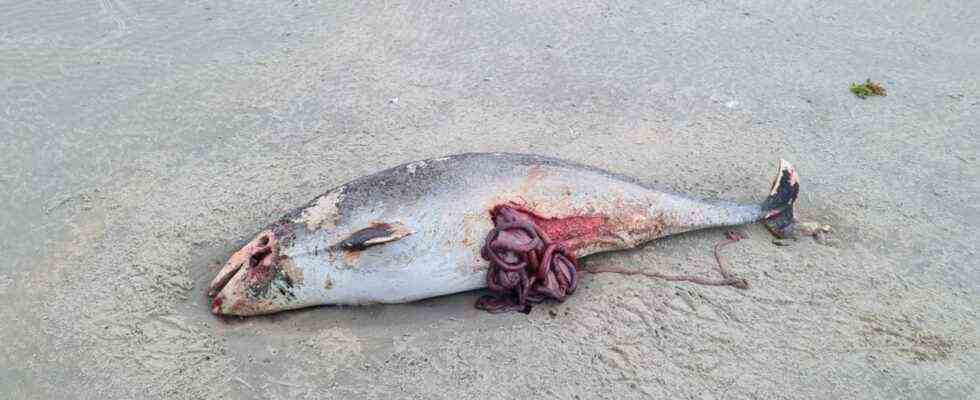Status: 09/01/2021 9:40 p.m.
Was it a disease or did the old ammunition detonating them kill the porpoises? Several carcasses have washed up on the beaches of Dutch islands since last week. Animal rights activists are concerned.
Dozens of dead porpoises washed up on the Dutch Wadden Islands. The high number of dead animals is very unusual and the cause is not yet known, said the Dutch nature conservation organization “Natuurmonumenten”.
This sets off “all alarm bells ringing” among animal rights activists, said the head of the animal welfare organization SOS Dolphin, Annemarie van den Berg. According to her, the carcasses are all similarly decayed. Experts believe that the animals died in the sea and were then driven to the shore.
Speculation about the cause
Some whales have since been brought to Utrecht University for examination. There, the state of health and the stomach contents of the animals are to be examined. The cause of the mass stranding has so far been a mystery, said marine biologist Lonneke IJsseldijk. She does not want to rule out a disease as the cause. She examines a carcass for the morbillivirus that threatens dolphins and whales.
The nature overseer Cynthia Borras said that work was in progress on a wind turbine farm in the Wadden Sea and that an international navy campaign to dispose of old ammunition in the Wadden Sea had recently started. Both could therefore affect the life of the whales.
“Deadly Sound Pressure”
In Germany, the chairwoman of the porpoise association, Denise Wenger, worries about the causes of whale death. “Quite a few whales in the photos showed bruises and skin defects that were untypical for scuff marks. So my first thought was that this could be a result of old ammunition detonation.” The high number of dead whales suggests that no measures were taken to protect the animals from the deadly sound pressure during the current mine blasting.
For years there have been efforts to neutralize the large number of duds from the Second World War that are still in the North Sea.

